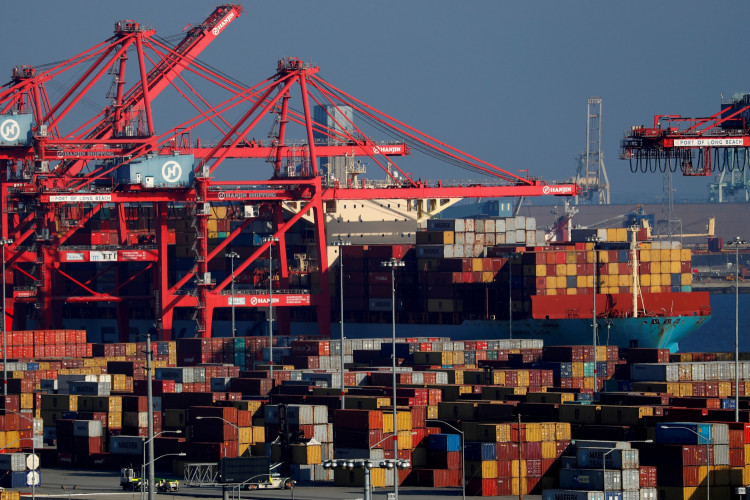The indiscriminate attacks by Yemen's Houthi rebels on commercial ships passing through the Red Sea have led many international shipping companies to suspend their Red Sea routes and take longer detours. The increased transportation costs for logistics companies could ultimately drive up oil prices and broader inflation in the affected regions.
As of December 21, the cost of shipping a 40-foot container from Shanghai to the UK surged to $10,000, up from just $2,400 the previous week. Trucking rates in the Middle East have more than doubled. According to data from global firm S&P Global, if the disruption in the Red Sea route prolongs, industries such as food, appliances, clothing, consumer goods, and chemicals in Europe, the Middle East, and North Africa will be severely impacted.
Despite the formation of an international Red Sea convoy alliance by the United States, most Arab countries along the Red Sea and Gulf region have not responded positively, casting high uncertainty over the effectiveness of the action.
The Red Sea route through the Suez Canal is the shortest link between Europe and Asia, accounting for 12% of the total global maritime transport. Peter Sand, Chief Analyst at consulting firm Xeneta, estimates that circumventing the Cape of Good Hope between Asia and Northern Europe could add an additional cost of $1 million, which will ultimately be passed on to consumers.
Meanwhile, more European companies are turning to air freight. Judah Levine, research director at international freight platform Freightos, noted that air freight prices from China to Northern Europe have been declining since late November. However, due to increasing demand this week, air freight prices have risen 13%, from $3.95 to $4.45 per kilogram.
For high-value goods, despite the higher costs of air freight, companies prefer it over the increased inventory and operational costs due to extended delivery times of sea freight.
India, the world's largest rice exporter, has seen strong demand from Europe and North Africa in recent years. With the disruption of the Red Sea route, India will need to find alternative routes to ship rice to Egypt and European countries, potentially leading to a 15% to 20% increase in overall prices, which may cause a slight rebound in inflation in the European market.
The suspension of the Red Sea route by several oil companies has intensified concerns about rising international oil prices. So far, oil prices have fluctuated slightly but have not changed significantly. As of the morning of the 22nd, Brent crude oil prices rose slightly from $77 at the beginning of the week to $80.3 per barrel, still below the fourth quarter's average price of $83.3. Tamas Varga, a senior market analyst at oil brokerage PVM, stated that unless oil suppliers are severely affected, the upward trend won't last long.
Dnyanada Kulkarni, a senior research analyst at Century Financial, mentioned that while Gulf region importers won't be immediately impacted before the New Year holidays, shortages of goods and supply chain issues are expected to emerge gradually by February next year. The head of the trade logistics branch of the United Nations Conference on Trade and Development, Hoffman, has also warned that the disruption of the Suez Canal to the Red Sea route will ultimately lead to a rise in consumer goods prices.




